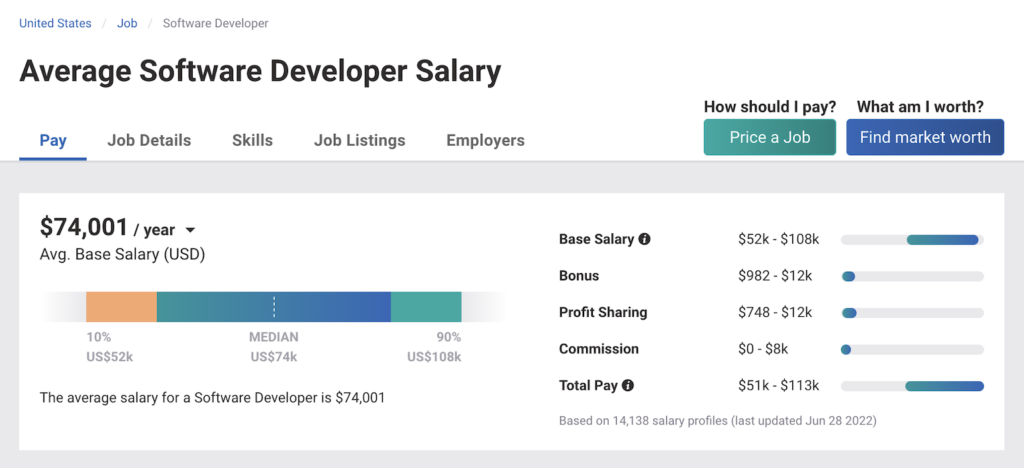Offshore Software Development: Cost-efficient Solutions for Expanding Companies
Offshore Software Development: Cost-efficient Solutions for Expanding Companies
Blog Article
Dedicated Developers vs. In-House Teams: Which Is Right for You?
The choice in between using devoted developers and keeping an internal team is a significant one that can impact the trajectory of your projects and total company approach. On the other hand, internal groups add to a natural business culture and a nuanced understanding of long-lasting objectives.
Recognizing Dedicated Developers
The expanding demand for specialized skills in the tech sector has actually resulted in the appearance of dedicated designers as a practical service for lots of organizations. These professionals are commonly acquired on a project basis, allowing companies to leverage specific experience without the lasting commitment connected with full time hires. Committed programmers are frequently embedded within a client's team, supplying adaptability and scalability to fulfill task requirements.
This model allows organizations to access a global talent pool, which is particularly beneficial in a rapidly developing technological landscape. Dedicated developers can be sourced from various geographical areas, making certain that firms can discover the right ability at affordable rates. They often bring a riches of experience and knowledge, having worked with varied tasks throughout different industries.
Furthermore, devoted developers can concentrate exclusively on the jobs available, enhancing productivity and performance. They are outfitted to integrate perfectly right into existing operations, working together carefully with internal teams to achieve project goals. This method not only lowers the worry of recruitment and training but additionally enables companies to stay nimble, adjusting swiftly to changing market needs and technological improvements.
Advantages of In-House Teams

Furthermore, in-house teams have a tendency to have a much deeper understanding of the firm's goal, worths, and goals. This alignment can improve worker interaction and inspiration, as group participants really feel extra attached to their job and the company's success. Furthermore, having a dedicated in-house team enables better alignment of methods and goals, as these members are constantly focused on the business's priorities.
In-house groups additionally promote quicker decision-making procedures, as they can respond much more rapidly to changes and challenges. The well established relationships and familiarity with firm methods enable for streamlined workflows and lowered miscommunication. Inevitably, the mix of a cohesive society, placement with organizational goals, and reliable interaction makes in-house teams a beneficial property for numerous companies, specifically those seeking to cultivate lasting growth and innovation.
Price Considerations
When evaluating price considerations, both committed developers and in-house teams present distinctive monetary implications for companies. Engaging specialized developers typically includes a pay-per-project or hourly rate version, which can be economical for businesses with changing project needs. This technique allows for versatility in scaling sources up or down, making sure that business just spend for the services they need.
In comparison, in-house teams pop over here involve fixed expenses, consisting of wages, benefits, and overhead costs such as office and devices. While this version offers higher control and instant schedule of resources, it may cause greater lasting expenses, particularly if the workload does not validate a permanent team.
Moreover, companies must think about the surprise prices related to recruitment and training of in-house workers, which can even more strain budgets. In many cases, the time and resources spent on taking care of an internal group can detract from the organization's core company goals.

Project Administration and Flexibility
Task management and adaptability are vital elements that affect the choice between devoted developers and internal teams. Dedicated designers generally supply a high degree of adaptability, allowing organizations to range resources up or down based on task demands. This agility can be specifically useful for services experiencing rising and fall workloads or those seeking to introduce rapidly. Devoted groups frequently have actually developed procedures for handling jobs properly, leveraging specific approaches like Agile or Scrum, which promote iterative progress and versatility.

Inevitably, the option in between dedicated designers and internal teams rests on the desired level of adaptability and the specific job monitoring demands. Firms have to assess their functional characteristics, project complexity, and resource accessibility to determine which choice lines up ideal with their strategic goals.
Making the Right Option
Picking the right advancement technique-- in-house groups or specialized programmers-- requires a careful assessment of various aspects that line up with a firm's critical objectives. software development partner. First, take into consideration this page the nature of the task. If it requires specialized abilities or a quick scale-up, devoted designers may be much more appropriate. Alternatively, internal groups can supply much better continuity and integration with existing personnel.
Next, review your budget plan. Dedicated programmers commonly present an affordable service for temporary jobs, while internal teams might incur greater long-term expenditures because of wages, benefits, and expenses costs. Analyze the level of control and cooperation preferred; internal teams commonly promote more powerful communication and placement with company society.
If instant outcomes are essential, dedicated developers can be onboarded rapidly, whereas building an in-house team takes time for recruitment and training. If constant development is essential, spending in an in-house group might yield much better returns over time.
Verdict
In verdict, the choice between dedicated developers and internal groups hinges on task needs and organizational purposes. Dedicated designers give versatility and specialized experience, making them ideal for short-term efforts. Alternatively, in-house teams cultivate a natural culture and much deeper alignment with long-lasting goals. Cautious assessment of budget restraints, job timelines, and wanted control degrees is necessary for determining one of the most proper technique, ensuring placement with calculated priorities and functional efficiency.
The choice between utilizing dedicated programmers and maintaining an in-house team is a considerable one that can influence the trajectory of your jobs and overall organization strategy.Job monitoring and adaptability are crucial aspects that affect the selection between devoted developers and in-house groups. software development staff augmentation.In contrast, in-house teams may excel in maintaining why not check here a consistent project management framework due to their familiarity with the organization's culture and long-term objectives. Devoted programmers usually present an affordable service for short-term projects, while in-house groups might sustain higher lasting costs due to incomes, benefits, and overhead costs.In verdict, the choice between devoted designers and in-house groups pivots on job demands and organizational purposes
Report this page